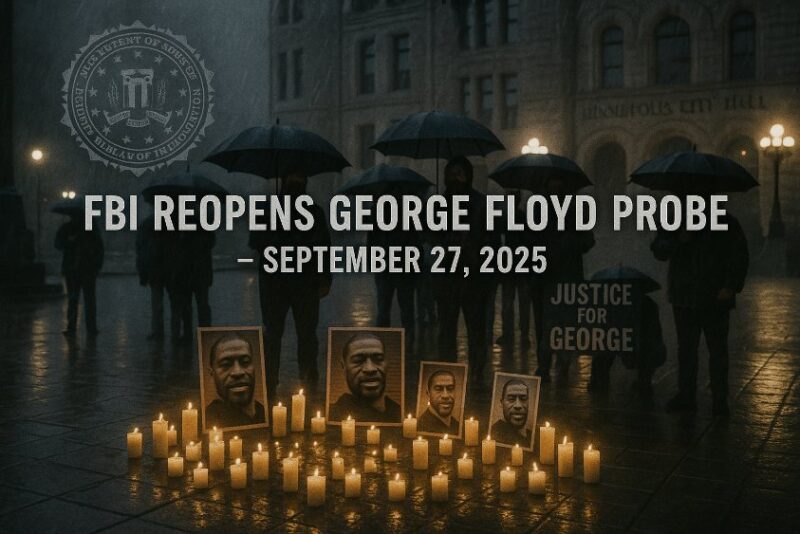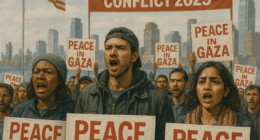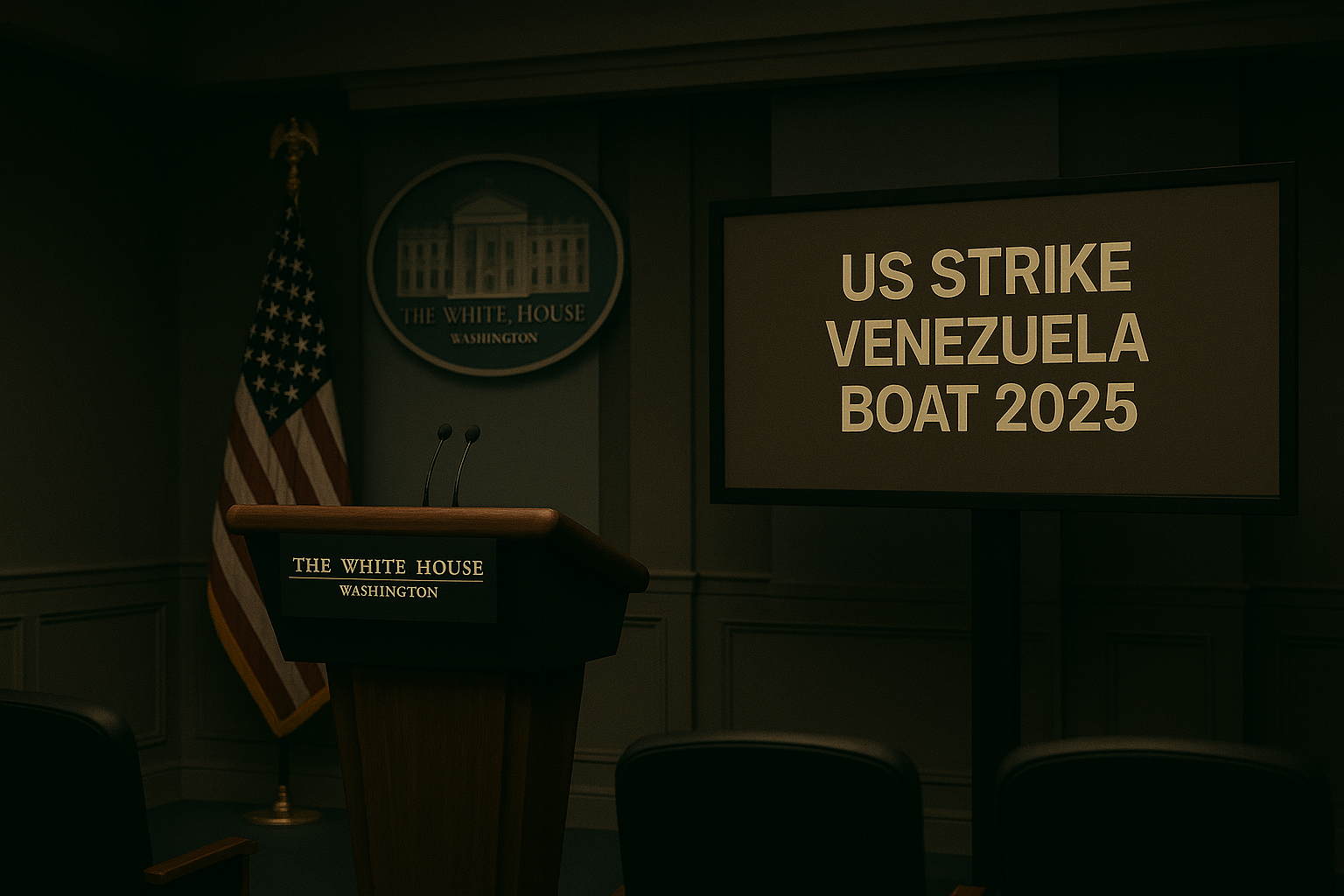A City’s Scars Reopened: Justice or Vendetta?
In a seismic shift that has Minneapolis—and the nation—holding its breath, FBI Director Kash Patel announced on September 27, 2025, the reopening of the federal investigation into George Floyd’s death. Five years after the 46-year-old Black man’s final plea of “I can’t breathe” ignited global protests against police brutality, Patel’s directive to probe potential civil rights violations by officers and city officials dredges up raw wounds. For Floyd’s family, still mourning under the weight of a $27 million settlement and a landmark murder conviction, it’s a flicker of renewed hope laced with skepticism: Will this unearth buried truths, or serve as a political tool in a divided America? As cameras flash outside the Hennepin County Courthouse, the emotional stakes pulse like a heartbeat—demanding accountability while fearing further fracture.
The Human Toll: Families Fractured, Communities on Edge
George Floyd’s killing on May 25, 2020, wasn’t just a video; it was a mirror shattering illusions of progress, exposing the terror of Black lives lost to unchecked power. For his six children and siblings, the probe’s revival stirs a torrent: Bridgeen Hennepin, his niece, clutches faded photos, whispering of uncles who “deserve the full story.” Officer Derek Chauvin’s 2021 federal conviction—22.5 years for violating Floyd’s rights—offered scant solace amid the $27 million payout to his estate, a sum that can’t rebuild shattered trust or erase the void at family gatherings.
Minneapolis neighborhoods, scarred by riots that torched 1.5 square miles, now brace for upheaval. Activists like Nekima Levy Armstrong, who marched in 2020’s fury, voice wary optimism: “This could validate our pain, but only if it’s thorough.” Yet, for white families in the suburbs, it’s unease over “reopening old fights,” a divide that Patel’s move risks widening. The human cost? Sleepless nights for parents teaching kids “the talk,” vigils relit with flickering candles, and a collective exhale held—yearning for healing that honors Floyd’s humanity over headlines.
Facts and Figures: The Probe’s Scope and Timeline
Patel’s order, issued via a memo to FBI field offices, directs a “comprehensive review” of Floyd’s 2020 death, scrutinizing Minneapolis PD’s training, oversight, and potential cover-ups beyond Chauvin’s actions. The original DOJ probe, closed in 2023 after finding “patterns of excessive force,” now faces reinvestigation amid Patel’s claims of “new evidence” from whistleblowers—though details remain sealed. Key figures: Chauvin (federal sentence: 21 years; state: 22.5), ex-officers J. Alexander Kueng (3.5 years federal), Thomas Lane (3 years), Tou Thao (4.5 years)—all convicted federally.
Timeline: Floyd pinned under Chauvin’s knee for 9 minutes 29 seconds; autopsy ruled homicide via cardiopulmonary arrest. Protests swelled to 15-26 million participants nationwide, per NYT estimates. DOJ’s 2023 consent decree with Minneapolis mandated reforms, costing $8.8 million annually. Patel, Trump’s pick confirmed in January 2025, cites “systemic failures overlooked,” vowing a 6-12 month probe with 50+ agents. No charges filed yet; Floyd’s family, via Ben Crump, demands transparency, eyeing a potential $50 million reparations fund.
Broader Context: Police Reform in a Polarized Era
Floyd’s death catalyzed the Justice in Policing Act’s near-passage in 2021, yet stalled amid partisan rifts—echoing Ahmaud Arbery and Breonna Taylor’s fates. Patel’s move, framed as “restoring trust,” aligns with Trump’s “law and order” redux, contrasting Biden’s equity focus. DOJ data: Black Americans 2.9 times likelier for police killings; 2024 saw 1,200+ such deaths, per Mapping Police Violence.
Socially, it spotlights inequities: Minneapolis’s 70% white force vs. 19% Black population fuels distrust. Historically, it parallels the 1992 Rodney King riots (63 deaths), but Floyd’s ubiquity—3 billion+ video views—galvanized #BLM globally, from UK’s toppled statues to Australia’s reforms. In 2025’s climate, with AI body cams and defund debates raging, this probe tests reform’s fragility—progress measured not in laws, but lives spared.
What Lies Ahead: Accountability, Reforms, and Reckoning
Patel’s timeline eyes indictments by mid-2026, potentially expanding to systemic probes in 50+ cities. Families push for independent oversight, with Crump eyeing congressional hearings. Minneapolis accelerates its consent decree: $30 million for mental health responders by 2027, body cam mandates. Communities build resilience—youth programs in North Minneapolis, cross-racial dialogues to bridge divides.
Globally, it inspires: EU’s police training mandates echo Floyd’s legacy. Governance demands balance: Patel vows “no sacred cows,” but watchdogs urge bias audits. For America, healing means memorials like the $4.5 million George Floyd Square, evolving into empowerment hubs. In this reopened chapter, may truth prevail, turning tragedy into transformative justice.
Conclusion: George Floyd’s Echoes in Patel’s FBI Probe
The FBI’s reopening of the George Floyd probe under Kash Patel isn’t closure—it’s a crossroads, where past pain meets future promise. As Minneapolis stirs and the nation watches, Floyd’s “mama, I love you” lingers, a call to confront complicity and champion change. In honoring his light, may this investigation illuminate paths to equity, ensuring no more names etched in sorrow.






